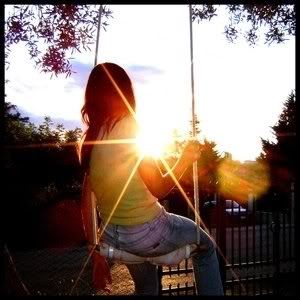
Today I was feeling irritable and frustrated, and I snapped at my daughter, who was already not pleased. She looked at me, upset, with tears in her eyes, and said, "Mama, you choosed angry, and now I'm choosing sad!" Wow. Once again, this small child pulls everything into perspective - cuts to the heart of the matter with an insight, clarity, and honesty that astounds me. Yes: I was choosing to feel anger. And in response, she was choosing to feel sad. I had a choice in how I responded to the circumstances. I had a choice in what I thought, and in what thoughts I accepted as valid and which I rejected. I had a choice in what I did with what I decided to feel.
If I can't find my children's shoes, can I still choose to feel joy? If I am tired, does that mean that my only option is to feel miserable? If I am nursing the baby, and my toddler is on the counter putting rice in the sugar, and sugar in the rice AGAIN - is my only recourse to feel awful, and to blame him for it? If I my preschooler tells me, "No!" do I have to feel anger?
While mainstream parenting says that children are responsible for their parents emotions ("If you didn't jump on the couch, I wouldn't be angry at you! You made me mad! Why do you do that? Stop making me get angry with you!") This idea - that other people cause our emotions, and have a responsibility for how we feel - is pervasive in our society. He made me cry. She makes him happy. You made me sad. He made his boss angry.
The truth of the matter is that no one can MAKE you feel anything. They do not possess a magical control over your emotions. Their behavior can influence us, often it triggers pre-set responses (either from habit, or from deep beliefs that a certain situation calls for a certain reaction.) But no one controls our emotions. My children do not force me to be angry. They do not force me to feel irritable or overwhelmed. These are things that I CHOOSE to do.
“We who lived in concentration camps can remember the men who walked through the huts comforting others, giving away their last piece of bread. They may have been few in number, but they offer sufficient proof that everything can be taken away from a man but one thing: the last of the human freedoms - to choose one's attitude in any given set of circumstances, to choose one's own way.”
-- Victor Frankl, Man's Search for Meaning
One of the greatest, most fully empowering realizations that a person can have is that we alone decide how we feel, and that joy is a choice that is available to each of us no matter what the circumstances. We can choose compassion. We can choose peace. We can choose connection.
I choosed angry. And now I'm choosing grateful.





 My StumbleUpon Page
My StumbleUpon Page